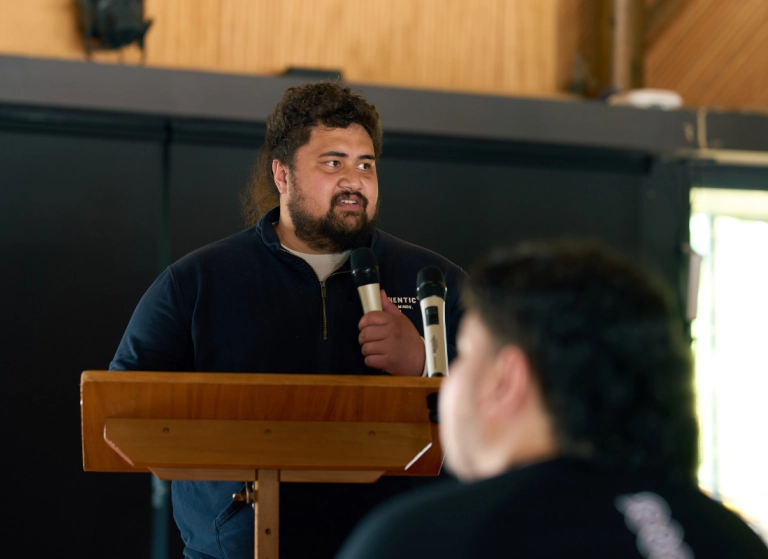Tausi Tausi embarks on a PhD to combat death from cardiac arrhythmia in Aotearoa
A cardiac arrhythmia is when the heart muscle contracts in an irregular way, an irregular heartbeat, and is the cardiac complication associated with the most deaths. The most common form of arrhythmia in Aotearoa is atrial fibrillation. Tausi Fusialofa Tausi (Tuvalu - Nanumaga, Vaitupu, and Kiribati - Tabiteua), a student at the University of Otago, is investigating how the spatial organisation of cardiac proteins affects how the heart contracts. His research could contribute to future treatments for cardiac arrhythmia, saving many lives. Tausi began a doctoral programme in April 2025.
Research wasn’t something that Tausi thought he would ever do; His academic record showed that he struggled early in his degree and then took some time out. On returning to study, he did very well in his last year, but his early grades had already impacted his opportunities. Despite his grade point average (GPA), Tausi completed a Pūtahi Manawa summer research programme in 2023/24 and then went on to be the first Pūtahi Manawa Pacific Postgraduate scholarship completion in 2024 with a B(Hons) majoring in physiology. Tausi received the 2024 University of Otago Steven-Condliffe Award – Awarded to the Physiology student with the highest dissertation score (Valued at $500.00).
Tausi returned for a second year in 2024/25 as a summer research student, mentor and role model for the inaugural Fatu Malosi student cohort. Tausi’s second summer research project built upon his B(Hons) thesis: A Closer Look at Heart Failure: CK2 Phosphorylation and RyR2 Clusters, supervised by Professor Pete Jones, Dr Michelle Munro and Dr Vanisha Mishra-Vakaoti.
“Primarily, Fatu Malosi gave me an opportunity to enhance my skills, which enables me to become a more proficient scientist. In the short span of 10 weeks, I learned about protein biochemistry and cell culture, which will serve as essential skills prior to a PhD programme. More importantly, aside from the science,
one of my biggest lessons was that I can be 100% myself and still carry out research. Witnessing all of the presentations really made me proud to be brown and doing research, and it really reminded me of my “WHY”.”
The postgraduate scholarship also allowed him to take up an opportunity to travel to Europe to meet with his supervisor, Professor Pete Jones’s collaborators. He spent a month at two renowned research labs: the Soeller Lab at the University of Bern in Switzerland and the Louch Lab at the Institute for Experimental Medical Research in Norway.
“Both the Soeller and Louch labs specialise in advanced super-resolution microscopy techniques to study RyR2 clusters and other cardiac proteins, which really piqued my interest. Although my time there was short, the discussions I had with the principal investigators and other lab members were incredibly enriching. These conversations went far beyond what I could have learned from publications alone, and I left feeling like I had gained valuable insights and a sense of belonging.
Looking further ahead, my long-term goal is to be in a position where I can help empower the next generation of Pacific Island youth to engage with scientific research.”
Tausi is back in New Zealand and has started his doctoral studies stating that it feels good to be back in the lab again after a very inspiring journey overseas. He sees his relationship with Pūtahi Manawa as integral to his long-term goals for Pacific engagement.
“Working with funding bodies like Pūtahi Manawa, future research strategies and initiatives can be developed to collaborate closely with local iwi and communities. ...as this next chapter unfolds, I hope to continually work alongside Pūtahi Manawa and its vision for the future of heart health in Aotearoa, both as a student and potential colleague/partner.”



